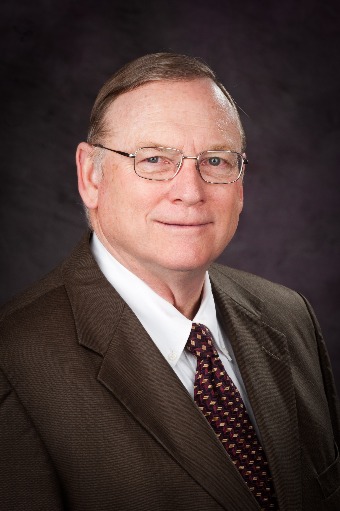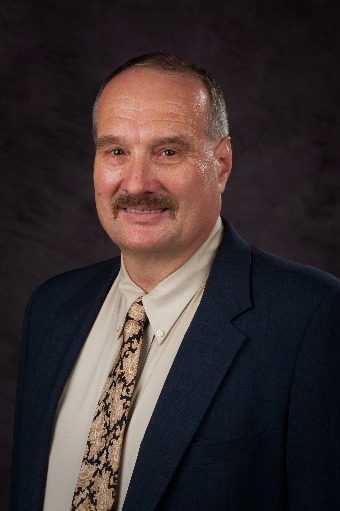Retirements
This page recognizes those who are retiring from the department. A short Bio and video are available here on the site. Press the following link to read a short bio of the retirees. A Playlist of farewell videos follows the bios below.
Retirements
 Bob Burton has served our department for 30 years. He began in the department in 1984 as an assistant professor, became associate professor in 1988, and professor in 1999.
Bob Burton has served our department for 30 years. He began in the department in 1984 as an assistant professor, became associate professor in 1988, and professor in 1999.
Bob Burton was instrumental in the distance education movement within the department through his undergraduate Farm and Ranch Management course. He has participated in disciplinary and interdisciplinary research, often focusing on risk and return in whole-farm or ranch management. Most recently, he focused his research on farm land ownership as a retirement strategy and agricultural health and safety.
The courses Burton taught at K-State included Farm and Ranch Management, Farm Resource Acquisition and Finance, Farm Management Strategies, Rural Banking, Advanced Farm Economics, Production Economics, and Computer Applications in Agricultural Economics and Agribusiness. Through these courses, and those taught at West Virginia University, Burton taught more than 5,000 students.
Burton earned his bachelor’s and master’s degrees in agricultural economics from Virginia Polytechnic Institute and State University in 1969 and 1977, respectively. He earned his Ph.D. in agricultural economics at Purdue University in 1982.
Prior to his time at K-State, Burton was an assistant professor at West Virginia University. He also served in the U.S. Navy from 1970 – 1974. Most of his time in the Navy was spent on the USS Sterret that was home-ported in San Diego. During that time, the Sterret went on two Western Pacific cruises. This included the opportunity to visit Hawaii, Hong Kong, Japan, and Taiwan.
A few of his many honors earned include the Gamma Sigma Delta Outstanding Teaching Award, 2008; recognition by the Mortar Board Senior Honor Society of Kansas State University for “Outstanding commitment to students of Kansas State University” 2007; and the Western Agricultural Economics Association, Outstanding Undergraduate Teaching with More Than 10 Years of Experience, 2003.
Professional organizations he served in included the American Society of Farm Managers and Rural Appraisers; International Association of Agricultural Economists; American Agricultural Economics Association (now the Agricultural and Applied Economics Association); Western Agricultural Economics Association; Southern Agricultural Economics Association; National Association of Colleges and Teachers of Agriculture; Kansas Association of Colleges and Teachers of Agriculture; and the Kansas Society of Farm Managers and Rural Appraisers.
 Orlen Grunewald has served our department for 36 years. He began in the department in 1978 as an associate professor.
Orlen Grunewald has served our department for 36 years. He began in the department in 1978 as an associate professor.
Grunewald’s undergraduate course areas included agribusiness management, agribusiness marketing, and computer applications. He has authored a textbook on food and agribusiness management for beginning students. His research activities focus on investigating the impacts of identity-preserved crops and livestock on supply chain management and agribusiness structures. Grunewald earned his bachelor’s degree in regional planning at the University of WisconsinGreen Bay in 1973. He earned his master’s and Ph.D. in agricultural economics at the University of Kentucky in 1975 and 1980, respectively.
The courses Grunewald taught included Agribusiness Management, Commodity Futures, Computer Decision Tools, Computer Applications in Agricultural Economics and Agribusiness, Livestock and Meat Marketing, Agribusiness Marketing, U.S. Grain Marketing Systems, and Ag in the Classroom.
Objectives of his research included: to investigate the structural efficiency of agricultural producers and agribusinesses in the supply chain; investigate entrepreneurship and integration in agri-food supply chains to understand the innovation processes that shape the supply chains; identify key success factors in value-added enterprises; create a series of educational modules based in applied research on value added agriculture; and to develop commercialization protocols to facilitate producer participation in wealth-creation value-adding initiatives.
Professional organizations he served in included the American Agricultural Economics Association (now the Agricultural and Applied Economics Association); Southern Agricultural Economics Association, serving on the editorial board for four years; and the Food Distribution Research Society. Grunewald served on the International Committee for the American Council on Consumer Interests in 1990. He was also a Kansas State University Presidential Lecturer in 1986. This listing is a mere snapshot of his honored efforts towards the agricultural economic industry and academia.
“This department has been strong in ranch and farm management, which is my specialty. We are also strong in teaching and I appreciate the opportunity to work with my fellow faculty members. I enjoyed teaching Production Economics because it addressed economic theory and taught students to understand economic theory, which seemed very useful. Our extension service is also one of the best in the country.”- Bob Burton
“When I came to K-State and started getting to know the faculty members, I really felt like we were family and I know that’s kind of cliché, because they tell the students we’re family here. But when you start looking at the department and the students that come in and the relationships here, K-State is more of a family than any other university I’ve been to. And I think it started with a culture. This culture started with a previous Dean, A.D. Weber. All of the students used to call him “Dad Weber” because he played that role for many of them who for the first time had left home, and he played the father-figure and I think he set the tone for me to recognize this culture.“- Orlen Grunewald
